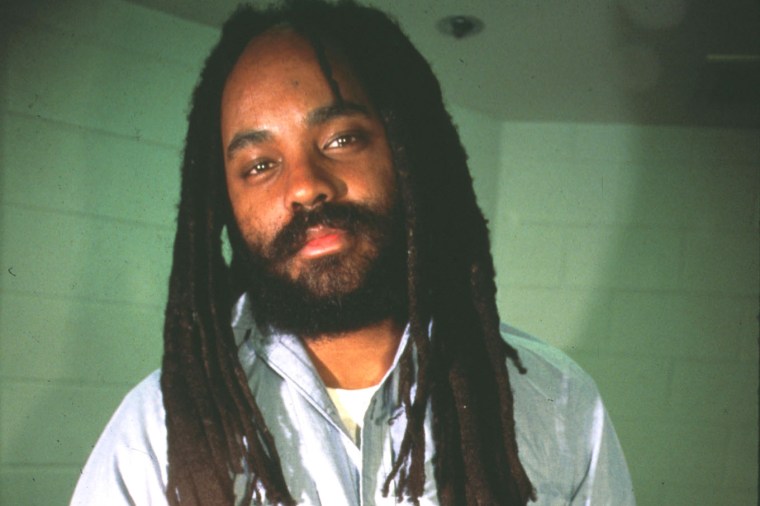The Philadelphia City Paper and one of its senior staff writers have joined in a federal lawsuit against Philadelphia’s district attorney and the state’s attorney general over a controversial new law that greatly limits the free speech rights of criminal offenders.
“We filed the suit because the law is clearly unconstitutional, violating both free speech and due process rights,” Daniel Denvir, the writer at the City Paper, wrote on Thursday about why he joined in the lawsuit. “The law is frighteningly vague and pathetically tailored to scapegoat criminal offenders in an effort to bolster politicians' law-and-order bona fides.”
In October of last year, outgoing Governor Tom Corbett signed the Revictimization Relief Act aimed at stopping former offenders from causing continued “mental anguish” of victims and their families by allowing victims and their families to sue offenders to keep them from making public statements that might cause the victims harm. Now, Denvir and the other plaintiffs are suing to overturn the law.
The Revictimization Relief Act was passed by a large majority in the state legislature and hinged almost entirely on silencing one man in particular: Mumia Abu-Jamal. Abu-Jamal was convicted in 1981 in the shooting death of Philadelphia Police Officer Daniel Faulkner. Originally sentenced to death, Abu-Jamal’s sentence was commuted to life in prison in 2011.
Abu-Jamal, a former journalist turned political activist, has become one of the most divisive figures in Philadelphia and the country, as he is reviled by many who view him as nothing more than a cop-killer, and celebrated by others who say he was wrongfully convicted by a notoriously racist judge and an all-white jury. His has become an international cause célèbre, garnering the support of various politicians, labor unions, non-profit and human and civil rights organizations.
RELATED: Democrat Wolf takes Pennsylvania governorship from Corbett
In the years since the killing, Abu-Jamal has authored several books from behind bars, including his 1995 opus, "Live from Death Row," as well as countless essays and op-eds. But perhaps most controversially, Abu-Jamal has delivered commencement addresses and participated in various panel discussions via telephone and recorded message. He has also been a regular contributor to online radio programs and documentaries.
The Revictimization Relief Act was passed just days after a recorded speech by Abu-Jamal was played at a commencement ceremony at Goddard College in Vermont. In the speech, Abu-Jamal never uttered Officer Faulkner’s name or made any reference to his killing. Still, the playing of his largely hopeful and encouraging message of “Take what you know, and apply it in the real world” and “help be the change you're seeking to make," drew the angst of Faulkner’s family and the Philadelphia police union.
Not long after signing the bill act into law, Corbett held a press conference just feet from where Faulkner was killed, and reportedly told those gathered that the law would stunt the “obscene celebrity” garnered by offenders like Abu-Jamal.
In the complaint filed in the U.S. District Court for the Middle District of Pennsylvania, Denvir and co-plaintiffs, including Prison Legal News, the Pennsylvania Prison Society and other individuals, say the Revictimization Relief Act is more aptly described as a so-called “Silencing Act.” “While the Silencing Act was drafted in response to the graduating class of Goddard College’s choice of Abu-Jamal as its commencement speaker, the Act’s impact extends far beyond just Abu-Jamal,” the complaint says. “In fact, the Silencing Act permits courts to enjoin and penalize any speech or other conduct by an “offender” (undefined) that causes “mental anguish” to a personal injury crime “victim” (broadly defined) or otherwise “perpetuates the continuing effect of the crime on the victim.” The plaintiffs argue that the law also applies to third-parties who publish such speech.
RELATED: Philadelphia becomes battleground for teachers unions
Regarding the lawsuit, the bill’s co-author, Republican State Rep. Mike Vereb told PennLive this week, "Our lawyers and I feel confident with the work we did on this.” Even if the law is struck down, Vereb said, he would make any corrections necessary to see it through right away.
Denvir, with the City Paper, wrote on Thursday that the law not only effects the speech of former offenders but also restricts his work as a journalist and others in media. “Under the First Amendment, it is nearly always unconstitutional to regulate speech based upon its content. That includes speech that people may not like — or even despise — like white supremacist marches or the Westboro Baptist Church's 'God Hates Fags' protests outside of funerals for soldiers,” he wrote. “It most certainly includes speech by criminal offenders who want to contend that they are innocent, repent for their crime, complain about prison conditions and correctional-officer abuse …” Denvir called it “the First Amendment's bread and butter.”
“This new law, however, harms far more than individual prisoners' free speech rights — it attacks mine as a journalist,” he said. “It could make prisoners think twice before contacting me, or bar them from doing so ... Even more Orwellian, it could allow someone to petition a judge to stop me or my newspaper from publishing work that is based on interviews with criminal offenders.”
